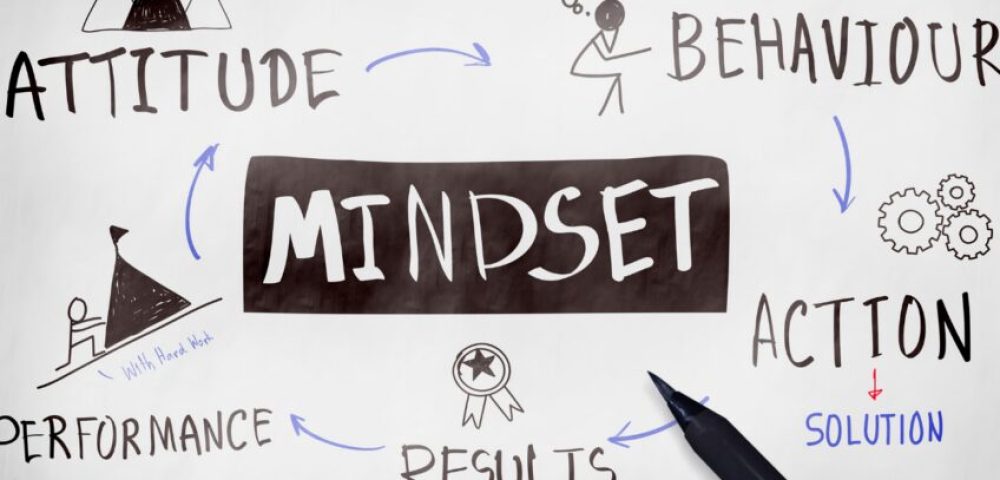Values and beliefs shape your mindset, influencing how you tackle problems and engage with others.
Discover how to modify your mindset using several methods.
Page Contents
- 1 Mindset vs Attitude
- 2 What Is a Mindset?
- 3 Can You Change It?
- 4 A Fixed Mindset
- 5 A Growth Mindset
- 6 How Long Does It Take to Change Your Mindset?
- 7 Attitude
- 8 Types of Attitudes:
- 9 Importance of Attitude:
- 10 How to Improve Your Attitude:
- 11 FAQ
- 11.1 Can You Really Shift Your Mindset?
- 11.2 How Do I Change My Mindset and Attitude?
- 11.3 What is Shifting Mindset?
- 11.4 How Do I Shift for Success?
- 11.5 Is It Possible to Change Your Mindset?
- 11.6 Why is Change so Hard?
- 11.7 How Can I Improve My Mindset?
- 11.8 How Do I be Happy?
- 11.9 How Can I Change My Behavior?
- 11.10 How Does a Mindset Change Affect Your Life?
- 11.11 How Long Does It Take to Shift Your Mindset?
- 11.12 Can You Train Your Mind to be Positive?
- 12 Conclusion
Mindset vs Attitude
How to change mindset and attitude – flatlay with notepad and flowers Your mindset determines your perception of the world around you, while your attitude dictates how you engage with the world based on your perspective. Carol Dweck, a Stanford University researcher, has provided valuable insights into the concept of mindset. She differentiates between a fixed mindset and a growth mindset. Let’s explore these further.

What Is a Mindset?
A mindset refers to a person’s ingrained beliefs, attitudes, and perspectives on the world. It plays a crucial role in decision-making and shaping one’s viewpoint. Successful individuals often possess a positive mindset that emphasizes mental well-being and self-development. A constructive mindset enables you to step out of your comfort zone and manage difficult situations effectively.
Conversely, negative mindsets are characterized by pessimism, fostering self-doubt and negative thinking. Recognizing the fluctuations in your mood and learning to manage them is essential for promoting positivity and personal growth. There are numerous ways to cultivate a positive mindset—from exercising to maintaining a regular journal—which can significantly transform your life, outlook, and future.
Can You Change It?
It’s possible to shift your mindset from negative to positive, or the other way around. Rigid mindsets can be detrimental as they hinder growth. People often seek a change in mindset when feeling stuck, acquiring new skills, or dealing with negative self-talk. These changes involve a series of small steps that demand patience. Adopting healthy habits and a new mindset can encourage optimism and a growth-oriented mentality.
Mindsets can also deteriorate from positive to negative. This can occur when an individual faces challenges in their personal or professional life, or when grappling with depression, anxiety, or self-doubt. When plagued by negative thoughts and seeking more joy and excitement, consider therapy and evaluate your habits and lifestyle to identify sources of happiness and stress.
A Fixed Mindset
When you possess a fixed mindset, you believe that your talents, intelligence, and abilities are predetermined and unchangeable. Consequently, you set modest goals to avoid failure.
An example of a fixed mindset: I’m not good at this and never will be. That’s just the way it is.
A Growth Mindset
Embracing a growth mindset means believing in the potential for development and improvement. You acknowledge your inherent set of talents and abilities but maintain that you can enhance your intelligence through learning and experimentation.
How Long Does It Take to Change Your Mindset?

Shifting one’s mindset takes time. Each person has a unique background, experience, and situation, so it’s difficult to determine how long it will take for someone’s mindset to change. Establishing new habits and making lifestyle adjustments can influence mindsets; generally, habit formation takes a few weeks or months.
Reevaluate and reshape your mindset by monitoring your mood and learning from your experiences. Keep track of your progress and take pride in your growth: small steps, novel experiences, and reflective journaling can pave the way for a new thought process that pushes you beyond your comfort zone.
5 Strategies to Enhance Mindset To enhance your mindset, consider these activities:
- A welcome change: Altering your mindset may involve making new friends, quitting a job, or relocating. Though it may be logistically challenging, embracing change can leave you stronger and healthier in the end.
- Establish goals: A positive mindset makes goals more achievable, so write them down to visualize them and take action. Break your goals into smaller, manageable steps to set yourself up for success.
- Surround yourself with optimistic individuals: Positive-thinking friends and family members are crucial when changing your mindset. If you’re surrounded by negativity, your habits may influence you and hinder self-improvement.
- Go for walks: A refreshing walk can clear your mind, offer perspective, and provide light exercise. Regular physical activity can enhance mental clarity and release mood-boosting endorphins.
- Discuss your emotions: Changing your mindset can be challenging. Talk to a friend or therapist and express your feelings. Engage in lengthy phone calls with loved ones or maintain a journal to articulate your emotions.
Attitude
Attitude refers to a person’s mental disposition or perspective towards various aspects of life, such as people, situations, or experiences. It encompasses an individual’s beliefs, feelings, and behavioral tendencies, which are shaped by various factors, including upbringing, culture, personal experiences, and social environment.
Types of Attitudes:
- Positive attitude: A positive attitude is characterized by optimism, enthusiasm, and a general sense of well-being. Individuals with a positive attitude tend to focus on the bright side of situations and are more likely to overcome challenges and achieve their goals.
- Negative attitude: A negative attitude is marked by pessimism, cynicism, and a tendency to dwell on negative aspects of life. Individuals with a negative attitude often struggle to see the good in situations and may experience more stress, anxiety, and difficulties in achieving success.
- Neutral attitude: A neutral attitude is neither positive nor negative. It is a balanced perspective where a person evaluates situations objectively without leaning towards optimism or pessimism.
Importance of Attitude:
- Influences behavior: Your attitude significantly affects how you behave in various situations. A positive attitude can motivate you to take constructive actions, while a negative attitude can lead to unproductive or harmful behaviors.
- Affects relationships: Your attitude can impact the quality of your personal and professional relationships. A positive attitude helps you maintain healthy relationships, while a negative attitude can strain connections and cause conflicts.
- Determines success: A positive attitude contributes to personal growth and success in different areas of life. It helps you stay focused on your goals, persevere through obstacles, and achieve your desired outcomes.
- Impacts mental health: Your attitude can influence your mental health and overall well-being. A positive attitude can reduce stress and anxiety levels, while a negative attitude can exacerbate mental health issues.
How to Improve Your Attitude:

- Practice gratitude: Make a conscious effort to appreciate the good things in your life. This can help shift your focus from negative thoughts to positive ones.
- Surround yourself with positive influences: Spend time with people who uplift and inspire you. Their positive energy will likely rub off on you.
- Set realistic goals: Set achievable, short-term goals and celebrate your accomplishments. This can boost your self-esteem and motivate you to maintain a positive attitude.
- Develop positive thinking habits: Replace negative self-talk with affirmations and positive statements. Practice visualization techniques and imagine yourself achieving your goals.
- Seek professional help: If you’re struggling to change your attitude, consider speaking with a therapist or counselor. They can provide valuable guidance and support in your journey towards a healthier attitude.
Discover the profound insights of a transformative journey in letting go and learn how it can inspire you to shift your perspective and embrace it.
FAQ

Can You Really Shift Your Mindset?
Yes, you can change your mindset, and doing so can significantly impact your life. Numerous stories of overcoming adversity inspire you to dig deep and find the power within yourself to create that mindset change.
How Do I Change My Mindset and Attitude?
Feeling like your work is not enough or that you’re not doing anything meaningful with your life is a common experience. To change the way you think, you need to shift your mindset and attitude.
What is Shifting Mindset?
Shifting your mindset means changing your beliefs and perspectives, which will alter your reality. Adopting new, more beneficial beliefs may be challenging, but it’s achievable with time and effort.
How Do I Shift for Success?
There isn’t a one-size-fits-all answer to achieving success. However, changing your mindset is a crucial factor. To do this, you’ll need to address your fears, build confidence, and take the necessary risks.
Is It Possible to Change Your Mindset?
Yes, it’s possible to change your mindset. By following simple steps and seeking coaching or support from a community, you can achieve a positive mindset change.
Why is Change so Hard?
Changing your mindset is challenging because you may be used to thinking and doing things a certain way. It takes trial and error to discover what makes you happy, but continuous self-judgment can hold you back.
How Can I Improve My Mindset?
Improving your mindset involves developing positive thinking habits, setting realistic goals, practicing gratitude, and surrounding yourself with positive influences.
How Do I be Happy?
Taking charge of your happiness starts with changing your mindset. Recognize the choices you have and strive for a positive attitude.
How Can I Change My Behavior?
Begin the process of changing your mindset and behavior by acknowledging your current situation and where you want to be. Reflect on your progress and set achievable goals.
How Does a Mindset Change Affect Your Life?
Your mindset influences your thoughts, feelings, and actions, which in turn shape your life. Changing your mindset can lead to improved well-being and greater success.
How Long Does It Take to Shift Your Mindset?
The time it takes to shift your mindset varies from person to person. With consistent encouragement, validation, and support, you can change your mindset over time.
Can You Train Your Mind to be Positive?
Positive psychology principles can help you think, feel, and behave more positively. By applying these principles, you can train your mind to be more optimistic and improve your overall level of happiness.
Conclusion
Shifting your mindset and attitude is a powerful and transformative process that requires time, effort, and support. By identifying and changing limiting beliefs, you can unlock your potential for personal growth, happiness, and success. Embrace the journey of self-discovery and take charge of your life by actively working on your mindset and attitude.
Theodore is a prolific author at Fischer Institute, known for his insightful articles on health and nutrition. His expertise spans a wide range of topics, from the benefits of traditional foods to the latest in health trends, always aiming to educate and empower readers towards better wellbeing.
Also Read:
- How to Be Mature in a Relationship: A Psychological…
- 7 Simple Ways to Attract People - Unleashing Your…
- Creative Ways to Cook with Charcuterie: Elevate Your…
- How to Get a Doctor’s Note for Work Without…
- Does Creatine Increase Testosterone? - Grow in More…
- Creating Change: How to Write a Thesis on Promoting…















